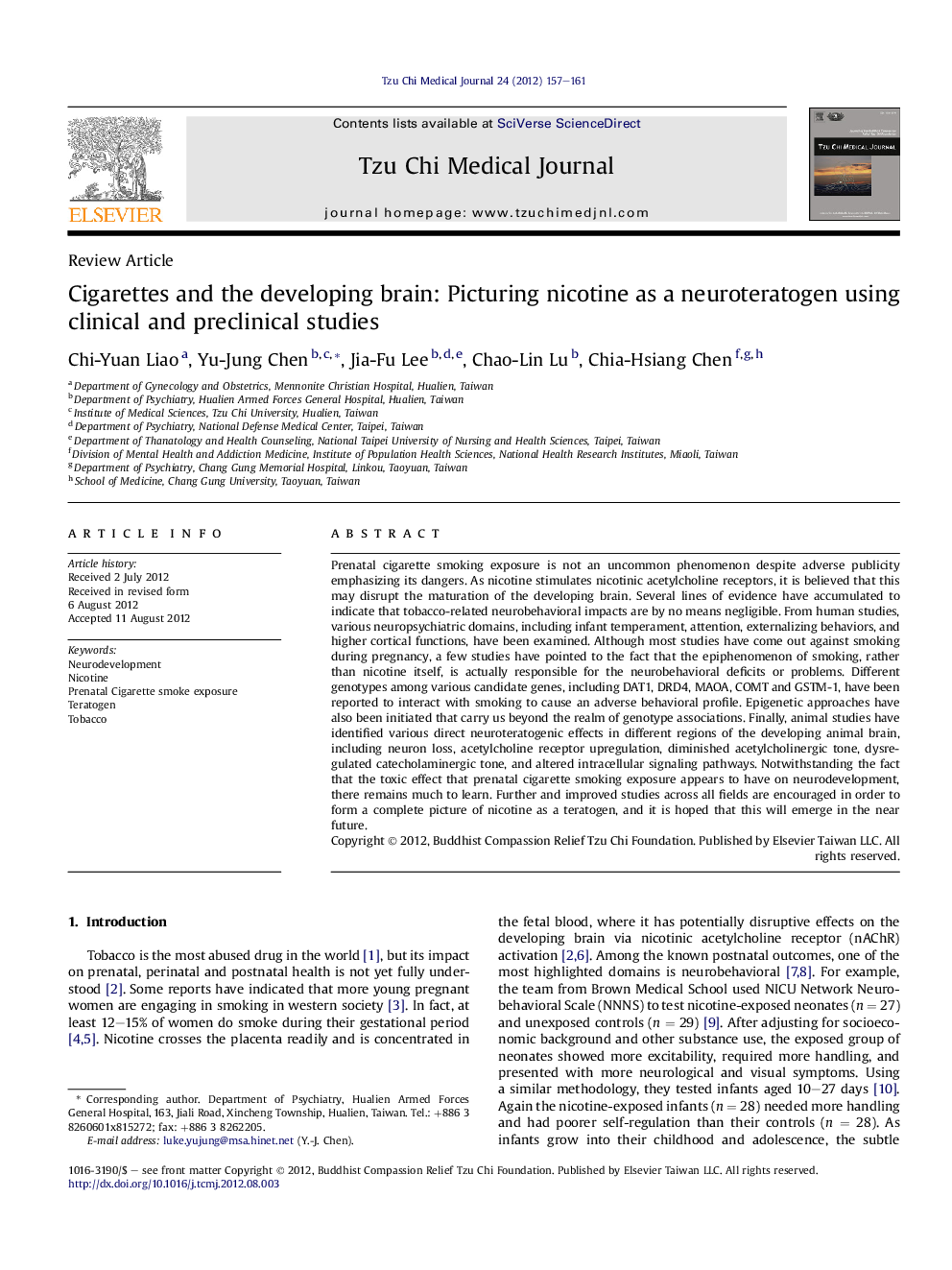| Article ID | Journal | Published Year | Pages | File Type |
|---|---|---|---|---|
| 3841997 | Tzu Chi Medical Journal | 2012 | 5 Pages |
Prenatal cigarette smoking exposure is not an uncommon phenomenon despite adverse publicity emphasizing its dangers. As nicotine stimulates nicotinic acetylcholine receptors, it is believed that this may disrupt the maturation of the developing brain. Several lines of evidence have accumulated to indicate that tobacco-related neurobehavioral impacts are by no means negligible. From human studies, various neuropsychiatric domains, including infant temperament, attention, externalizing behaviors, and higher cortical functions, have been examined. Although most studies have come out against smoking during pregnancy, a few studies have pointed to the fact that the epiphenomenon of smoking, rather than nicotine itself, is actually responsible for the neurobehavioral deficits or problems. Different genotypes among various candidate genes, including DAT1, DRD4, MAOA, COMT and GSTM-1, have been reported to interact with smoking to cause an adverse behavioral profile. Epigenetic approaches have also been initiated that carry us beyond the realm of genotype associations. Finally, animal studies have identified various direct neuroteratogenic effects in different regions of the developing animal brain, including neuron loss, acetylcholine receptor upregulation, diminished acetylcholinergic tone, dysregulated catecholaminergic tone, and altered intracellular signaling pathways. Notwithstanding the fact that the toxic effect that prenatal cigarette smoking exposure appears to have on neurodevelopment, there remains much to learn. Further and improved studies across all fields are encouraged in order to form a complete picture of nicotine as a teratogen, and it is hoped that this will emerge in the near future.
